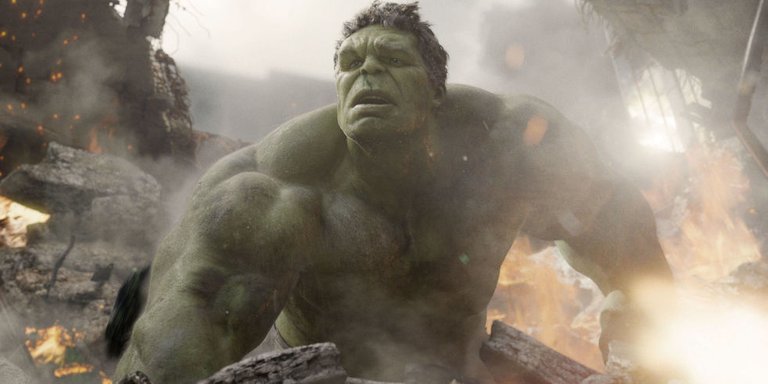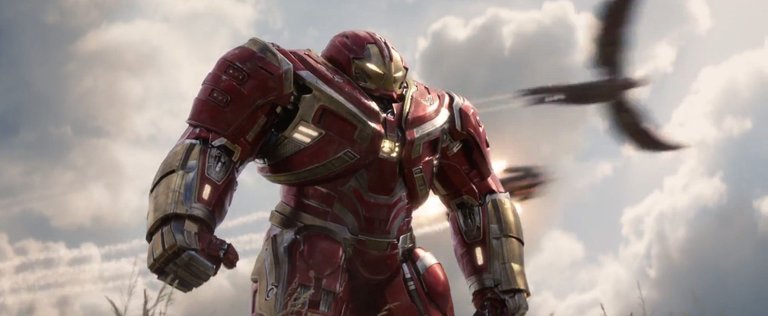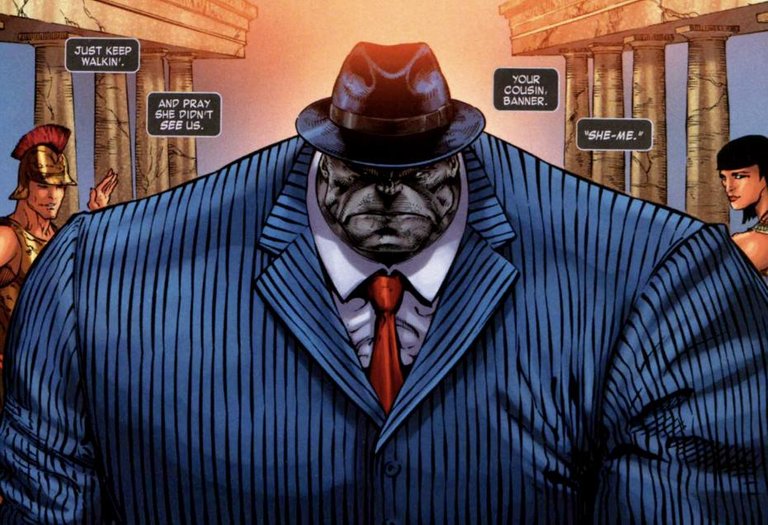
After what happens to him on the Asgard ship, the Hulk is scared. It’s as simple as that.
Spoilers below, for those who haven’t seen Avengers: Infinity War or Thor: Ragnarok.
Some people see the Hulk as a completely different character from Bruce Banner, but they are missing something very important about the Hulk. He is Bruce Banner, just an emotional childlike version.
History of the Hulk
When Stan Lee created the Hulk he wanted to introduce a sympathetic monster in the vein of Dr. Jekyll and Mr. Hyde. Here’s Lee talking about creating the Hulk in an interview for Rolling Stone,
“I was getting tired of the normal superheroes and I was talking to my publisher. He said, ‘What kind of new hero can we come up with?’ I said, ‘How about a good monster?’ He just walked out of the room. I remembered Jekyll and Hyde, and the Frankenstein movie with Boris Karloff and it always seemed to me that the monster was really the good guy; he didn't want to hurt anybody, but those idiots kept chasing him up the hill until he had to strike back. So why not get a guy who looks like a monster and really doesn't want to cause any harm. But he has to in self-defense, because people are always attacking him.”
So, it’s important to realize that, like Dr. Jekyll and Mr. Hyde, Bruce Banner and the Hulk are still the same person, and we’re dealing with some pop psychology here.
And Now… A Little Psychology
Sigmund Freud created a model of the psyche that includes the Id, the Ego, and the SuperEgo. The Hulk is a pure manifestation of Bruce Banner’s Id.
According to Simply Psychology,
“The id is the impulsive (and unconscious) part of our psyche which responds directly and immediately to the instincts. The personality of the newborn child is all id and only later does it develop an ego and super-ego.
The id remains infantile in its function throughout a persons life and does not change with time or experience, as it is not in touch with the external world. The id is not affected by reality, logic or the everyday world, as it operates within the unconscious part of the mind.”
https://www.simplypsychology.org/psyche.html
The Hulk (as he is represented in the Marvel Cinematic Universe currently) is a childlike character that is driven by base instincts, and mostly by anger.
Hulk is transported away from the Asgard ship, but it’s Bruce Banner that arrives at Doctor Strange’s Sanctum Sanctorum. He’s frightened. He’s in shock. He’s frantically warning them that Thanos is coming.
Bruce Banner recovers throughout the film. By the end of the movie we see him laughing when Thor arrives. Banner is better-prepared psychologically to deal with what happened when Hulk took that beatdown.
The Hulk is pure Id, and nearly incapable of processing what happened. He’s letting Banner take the wheel.
In the MCU, the Hulk has never been defeated in the manner that Thanos displayed. Even when Thor beat Hulk at the Grandmaster’s Arena in Thor: Ragnarok it was much more even fight.
Thanos decimated Hulk with ease, and scared him into hiding.

The Hulk is still in the same frame of mind that Banner was when he arrived at the Sanctum Sanctorum. Banner however, has dealt with what happened and is ready to fight, which is why he dons the Hulkbuster armor and fights alongside the other heroes in Wakanda.
The Marvel Cinematic Universe
The creators of the MCU are exploring the psychological elements of Bruce Banner and the Hulk. In Thor: Ragnarok we learn that the Hulk took over for an extended period of time (maybe a couple of years).
In Avengers: Infinity War Banner has taken over.

It’s possible that in Avengers 4, or later, we’re heading to a Hulk that incorporates some of the higher functions of Banner, much like the Grey Hulk, or Joe Fixit, from the comics (or many other variations that the MCU creators are drawing from).
They have over five decades of stories to find inspiration, and by mixing things up it keeps the character fresh and interesting on screen.
All images are copyright by Marvel Studios and Marvel Comics.
If you enjoyed this article, please give me a comment, an upvote, or a resteem! I'll share more of what you love the most.
Follow me: @DirkHooper

I felt much the same, the idea that Hulk got scared. And we’ve already seen Hulk develop increasing language skills and personality.
Reading your analysis, it got me thinking & wondering just what Marvel would be willing to incorporate from the comics. If Banner’s childhood mirrors the comics, we’re looking at a history of a violently abusive father. Thanos could be providing quite a father figure flashback if that’s the case... but in the end it could be key to unleashing rage unlike any we’ve seen from the Hulk!
Thank you for the comment!
I'm not sure where they are going, but they have a lot of history to use if they want.
I think they will continue to play with the character for as long as he's in the films.
Hola amigo muy interesante tu artículo, y el análisis de este personaje. La verdad es que crecí viendo a hulk, tanto en los cómic, como las series de tv y las películas. Es cierto realmente hulk actúa por los más básicos instintos. Lo vemos incluso cuando banner se enamora, es solo la chica la que logra calmarlo, o enojarlo cuando la ve amenazada. Saludos.
Thank you for your comment!
Hi! I am a robot. I just upvoted you! I found similar content that readers might be interested in:
https://simplypsychology.org/psyche.html
I benefit from seeing different angles to a conversation and wonderful movie to all want to watch boss @dirkhooper
Thank you!
hulk, crush
If you do not stop, your account will be rendered invisible on Steemit. Bad Steemian! Bad!@steem881 you're on the @abusereports naughty list!
If you do not stop, your account will be rendered invisible on Steemit. Bad Steemian! Bad!@steem881 you're on the @abusereports naughty list!
If you do not stop, your account will be rendered invisible on Steemit. Bad Steemian! Bad!@steem881 you're on the @abusereports naughty list!